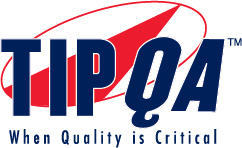Best Shop Floor Management Software
Best shop floor management software trending in the market is EnterpriseIQ, MasterControl, and Katana MRP. These system tracks and reports the performance of a particular floor in a manufacturing plant for uninterrupted processing.



No Cost Personal Advisor
List of 20 Best Shop Floor Management Software
Emergents | 2024
Software by IQMS
IQMS’ packaging ERP software is designed with adeptly designations lot and serial UPC labeling, pack outs, traceability external and internal document control and BOM versatility for dies and inks so that your company can grow its operational excellence and stay competitive. Learn more about IQMS Manufacturing ERP
Explore various IQMS Manufacturing ERP features, compare the pricing plans, and unlock the potential of seamless operations by selecting the right software for your business.
- Supplier Management
- Document Management
- For Manufacturers
- Inventory Management
- Asset Management
- Project Management
IQMS Manufacturing ERP Caters to
- StartUps
- SMBs
- Agencies
- Enterprises
Emergents | 2024
Software by MasterControl, Inc
MasterControl is a highly efficient DMA that renders goal-specific services. The inter-linked solutions of this document management software help to do needed document editing at any time. You can also share the documents across the teams. Learn more about MasterControl
Explore various MasterControl features, compare the pricing plans, and unlock the potential of seamless operations by selecting the right software for your business.
Features
View all MasterControl Features- Print Management
- Compliance Management
- Collaboration
- Document Delivery
- Document Conversion
- Messaging System
- Search Option
- Document Indexing
Pricing
Business
$ 1000
Per Month
MasterControl Caters to
- StartUps
- SMBs
- Agencies
- Enterprises
Emergents | 2024
Software by Jobscope Business Solutions
JOBSCOPE is a fully featured Erp Software designed to serve Startups, Agencies. JOBSCOPE provides end-to-end solutions designed for Web App. This online Erp system offers Financial Management, Project Management, Warehouse Management, Work order management, Bills of Material at one place. Learn more about JOBSCOPE
Explore various JOBSCOPE features, compare the pricing plans, and unlock the potential of seamless operations by selecting the right software for your business.
Features
View all JOBSCOPE Features- Inventory Management
- HR Management
- Financial Management
- Safety Management
- Purchasing
- Scheduling
- CRM
- Production Scheduling
JOBSCOPE Caters to
- StartUps
- SMBs
- Agencies
- Enterprises
Emergents | 2024
Software by ECi Software Solutions
Jobboss is an outstanding and widely-trusted shop management ERP solution from the United States. It comes as an on-premise and cloud software. It has CRM/HRM/Workflow management modules which are highly customizable. Read JobBOSS Reviews
Explore various JobBOSS features, compare the pricing plans, and unlock the potential of seamless operations by selecting the right software for your business.
Features
View all JobBOSS Features- Quotation & Estimates
- Dashboard
- Purchase Management
- Reporting/Analytics
- Supply Chain Management
- Supplier and Purchase Order Management
- Inventory Management
- Employee Data Base
JobBOSS Caters to
- StartUps
- SMBs
- Agencies
- Enterprises
Contenders | 2024
Software by OpenPro ERP software
OpenPro is the first company to build a complete Web-Based SQL Server ERP system. It created three versions: Easy ERP for the smaller manufacturer with basic needs, OpenPro ERP for companies with over 10 users and Enterprise ERP for the larger Organizations. Read OpenPro Reviews
Explore various OpenPro features, compare the pricing plans, and unlock the potential of seamless operations by selecting the right software for your business.
OpenPro Caters to
- StartUps
- SMBs
- Agencies
- Enterprises
Emergents | 2024
Software by DataBasics
DataBasic is a software which helps in submitting, approving and verifying expenses. It comes with an in-built budgeting tool which helps you can keep a track of the financial status of your firm. Learn more about Databasics
Explore various Databasics features, compare the pricing plans, and unlock the potential of seamless operations by selecting the right software for your business.
Features
View all Databasics Features- Invoice Management
- Time Tracking
- Multi-Currency
- Applications Management
- Time & Expense Tracking
- Data Imports/Exports
- Invoices
- Expense Tracking
Pricing
Basic
$ 4
Per Month
Databasics Caters to
- StartUps
- SMBs
- Agencies
- Enterprises
Emergents | 2024
Software by Exenta, Inc
Exenta is a fully featured Erp Software designed to serve SMEs, Enterprises. Exenta provides end-to-end solutions designed for Windows. This online Erp system offers Financial Management, Billing & Invoicing, Distribution Management, Materials Management, Reporting/Analytics at one place. Learn more about Exenta
Explore various Exenta features, compare the pricing plans, and unlock the potential of seamless operations by selecting the right software for your business.
Features
View all Exenta Features- Materials Management
- Purchase Order Management
- Returns Management
- Inventory Management
- Financial Management
- Distribution Management
- Catalog Management
- Presentation Tools
Exenta Caters to
- StartUps
- SMBs
- Agencies
- Enterprises
Emergents | 2024
Software by OmegaCube Technologies
OmegaCube ERP is a fully featured Scheduling Software designed to serve Startups, Agencies. OmegaCube ERP provides end-to-end solutions designed for Web App. This online Scheduling system offers Traceability, Document Management, Supplier Management, MES, Supply Chain Management at one place. Learn more about OmegaCube ERP
Explore various OmegaCube ERP features, compare the pricing plans, and unlock the potential of seamless operations by selecting the right software for your business.
Features
View all OmegaCube ERP Features- Document Management
- MES
- Order Management
- Resource Management
- Capacity Planning
- Supplier Management
- Safety Management
- Quotes/Estimates
OmegaCube ERP Caters to
- StartUps
- SMBs
- Agencies
- Enterprises
Emergents | 2024
We simplify your manufacturing.
Global Shop Solutions ERP software offers an all-inclusive system allowing you to run a more efficient manufacturing operation from inventory management to job costing, scheduling, tracking and efficient quality management. Learn more about Global Shop Solutions
Explore various Global Shop Solutions features, compare the pricing plans, and unlock the potential of seamless operations by selecting the right software for your business.
- Payroll Management
- Job Management
- Manufacturing
- Asset Planning
- Bookkeeping
- Dashboard
- Financial Reporting
- Real Time Visibility
Global Shop Solutions Caters to
- StartUps
- SMBs
- Agencies
- Enterprises
Emergents | 2024
Software by Rootstock
Rootstock is an impeccable ERP software. Specially tailored-made for manufacturing, distribution & supply chain industries. It is cloud-based and is AI ready. It helps in getting product overview, preparing sales order, and so on. Learn more about Rootstock
Explore various Rootstock features, compare the pricing plans, and unlock the potential of seamless operations by selecting the right software for your business.
Features
View all Rootstock Features- Customer Portal
- HR & Payroll
- Real time data
- Time Tracking
- Payments
- Warehouse Management
- Employee Data Base
- Sales and Distribution
Rootstock Caters to
- StartUps
- SMBs
- Agencies
- Enterprises
Emergents | 2024
Software by Fujitsu Glovia
GLOVIA G2 is a fully featured Erp Software designed to serve Startups, SMEs. GLOVIA G2 provides end-to-end solutions designed for Windows. This online Erp system offers CRM, Project Management, Safety Management, Accounting Integration, Automated Scheduling at one place. Learn more about GLOVIA G2
Explore various GLOVIA G2 features, compare the pricing plans, and unlock the potential of seamless operations by selecting the right software for your business.
Features
View all GLOVIA G2 Features- Document Management
- Production Scheduling
- Order Management
- Purchase Order Management
- Quote Management
- Financial Management
- Inventory Management
- Supplier Management
GLOVIA G2 Caters to
- StartUps
- SMBs
- Agencies
- Enterprises
Emergents | 2024
Business Made Easy
CONNETINBOT web-based application to streamline business operations. B2C and B2B billing system, Stock & Inventory, Reports, CRM tool, Quality Automation, and many more features. Learn more about CONNETINBOT
Explore various CONNETINBOT features, compare the pricing plans, and unlock the potential of seamless operations by selecting the right software for your business.
Features
View all CONNETINBOT Features- CRM & Sales Reports
- Quality Management
- Distributor Management
- Business Process Automation
- Receipt Management
- Backorder Management
- Quality Control
- Demand Planning
CONNETINBOT Caters to
- StartUps
- SMBs
- Agencies
- Enterprises
Contenders | 2024
online shopping website with seller system
Build a modern online store to grow your brand Internet merchants have many challenges when it comes to turning visitors into customers. One element that is often overlooked is the product page. These pages are what will really drive visitors to make the purchase. Duplex offer great eCommerce Software. Read Duplex - eCommerce Web Portal Reviews
Explore various Duplex - eCommerce Web Portal features, compare the pricing plans, and unlock the potential of seamless operations by selecting the right software for your business.
- Integration with marketplaces
- Inventory Management
- Abandoned Cart Reminder
- Mobile Friendly Store
- Orders Management
- Content Management System
- Customer Support
- Mobile App
Pricing
BASIC
$ 451
One time
ECONOMIC
$ 764
One time
PREMIUM
$ 1181
One time
Duplex - eCommerce Web Portal Caters to
- StartUps
- SMBs
- Agencies
- Enterprises
Contenders | 2024
Multi-Store Shopping Cart Software
Webcart is the easiest and powerful software of eCommerce platform that can help you to start and manage your online stores with ease. Any of retailers can manage every task from single Admin Panel. Likewise, you can appoint staff to a store with a specific part approaching control. Read Web-Cart Reviews
Explore various Web-Cart features, compare the pricing plans, and unlock the potential of seamless operations by selecting the right software for your business.
Features
View all Web-Cart Features- Multi Location
- Purchase Order
- Inventory Tracking
- Secure Sockets Layer (SSL)
- Community Management
- Multi-Store Management
- Reorder Management
- Software Inventory
Pricing
Starter
$ 99
Per Unit
Business
$ 199
Per Unit
Professional
$ 299
Per Unit
Web-Cart Caters to
- StartUps
- SMBs
- Agencies
- Enterprises
Emergents | 2024
Turn quality into a competitive advantage
TIP Technologies has helped some of the world's largest corporations gain a competitive advantage with its highly respected quality assurance solution. TIPQA consists of fifteen integrated modules that support the complete range of quality functions and the complex business requirements facing manufacturers today. Learn more about TIPQA Quality Management Solution
Explore various TIPQA Quality Management Solution features, compare the pricing plans, and unlock the potential of seamless operations by selecting the right software for your business.
- Document Management
- Testing Management
- Audit Management
- Incident Management
- Nonconformance Tracking
- Risk Management
- Corrective Actions (CAPA)
- ISO Standards Management
TIPQA Quality Management Solution Caters to
- StartUps
- SMBs
- Agencies
- Enterprises
Emergents | 2024
Manage, prioritize, and scale manufacturing operat
Focus MRP is an advanced ERP solution for manufacturing units/plants, which enables establishments to gain end-to-end traceability of entire plant operations. It streamlines core business functions to optimize manufacturing production scheduling and master the complexities. Learn more about Focus MRP
Explore various Focus MRP features, compare the pricing plans, and unlock the potential of seamless operations by selecting the right software for your business.
Features
View all Focus MRP Features- Document Creation
- Invoice Management
- Quote Management
- Work Orders
- Quality Control
- Compliance Management
- Process Manufacturing
- Accounting Integration
Pricing
Pricng
$ 45
Per Month
Focus MRP Caters to
- StartUps
- SMBs
- Agencies
- Enterprises
Emergents | 2024
Software by WorkWise LLC
WorkWise CRM is a fully featured Sales Automation software designed to serve SMEs, Startup, Agencies, Enterprises. WorkWise CRM provides end-to-end solutions designed for Web App. This Sales Automation software offers Contact Management, Opportunity Management, Mobile CRM, Business Card Reader, Outlook Integration at one place. Learn more about WorkWise CRM
Explore various WorkWise CRM features, compare the pricing plans, and unlock the potential of seamless operations by selecting the right software for your business.
Features
View all WorkWise CRM Features- Reporting/Analytics
- Supply Chain Management
- Production Management
- Work Order Management
- Time Tracking
- Inventory Management
- Document Management
- Materials Management
WorkWise CRM Caters to
- StartUps
- SMBs
- Agencies
- Enterprises
Emergents | 2024
Software by frePPLe
Frepple is a fully featured Scheduling Software designed to serve Startups, SMEs. Frepple provides end-to-end solutions designed for Windows. This online Scheduling system offers Capacity Planning, What-if Analysis, Scheduling, MRP, Change Management at one place. Learn more about Frepple
Explore various Frepple features, compare the pricing plans, and unlock the potential of seamless operations by selecting the right software for your business.
Features
View all Frepple Features- Scheduling
- MRP
- What-if Analysis
- Capacity Planning
- Change Management
- Automated Scheduling
Pricing
Basic
$ 2400
Per Month
Advanced
$ 6000
Per Month
Full
$ 12000
Per Month
Frepple Caters to
- StartUps
- SMBs
- Agencies
- Enterprises
Emergents | 2024
Fully-Integrated ERP
QT9 ERP is a fully featured Large Enterprise ERP Software designed to serve Startups, SMEs. QT9 ERP provides end-to-end solutions designed for Web App. This online Large Enterprise ERP system offers Production Scheduling, Project Management, Purchase Order Management, Quality Management, Order Management at one place. Learn more about QT9 ERP
Explore various QT9 ERP features, compare the pricing plans, and unlock the potential of seamless operations by selecting the right software for your business.
Features
View all QT9 ERP Features- Equipment Tracking
- Supply Chain Management
- Purchase Order Management
- Production Management
- Online Payment Processing
- Customer Management
- Multiple Version Calculations
- Reporting
QT9 ERP Caters to
- StartUps
- SMBs
- Agencies
- Enterprises
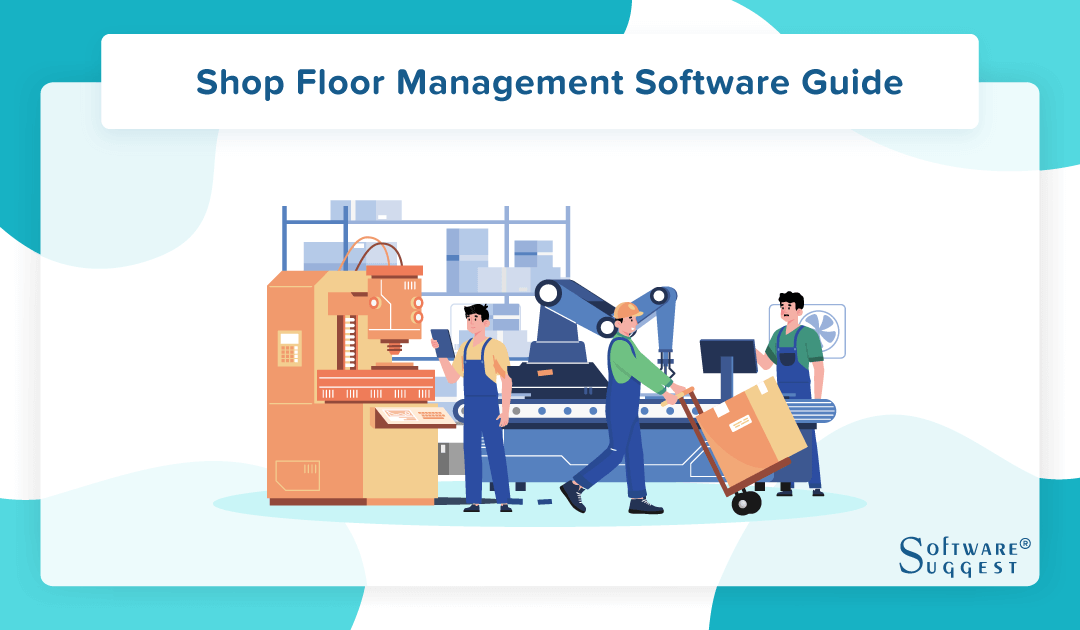
There has never been a greater need for efficient and optimized manufacturing methods than in today's fast-paced industrial sector. Manufacturers who wish to streamline all their processes, minimize waste, and enhance production must get their hands on shop floor management software.
This one-of-a-kind software enables managers to make excellent data-driven choices and adapt swiftly to changes in demand or production requirements by providing real-time visibility into shop floor activity.
Today we'll be exploring the functionalities, benefits, and deployment of shop floor management software so you can carefully decide whether this software is the right option for your manufacturing company. Let's dig deep!
What Is Shop Floor Management Software?
In order to manage their production data and documentation, including essential batch records and manufacturing travelers, many manufacturers still use paper-based methods.
Manual data collection and file organization require ample time and even increase the risk of errors. This is where shop floor management software comes into the picture. It makes the manufacturing processes streamlined and improves visibility along with data integrity.
This visual front-end serves manufacturers with increased performance control. Your plant floor will be better informed with MES software since it will have real-time access to a wide range of shop floor operations. This includes identifying any production inefficiencies, inventory adjustments, downtime reporting, label printing, etc.
Types Of Shop Floor Management Software
There are various types of shop floor management software. Some of them are listed below to help you invest in the best one for your business requirements.
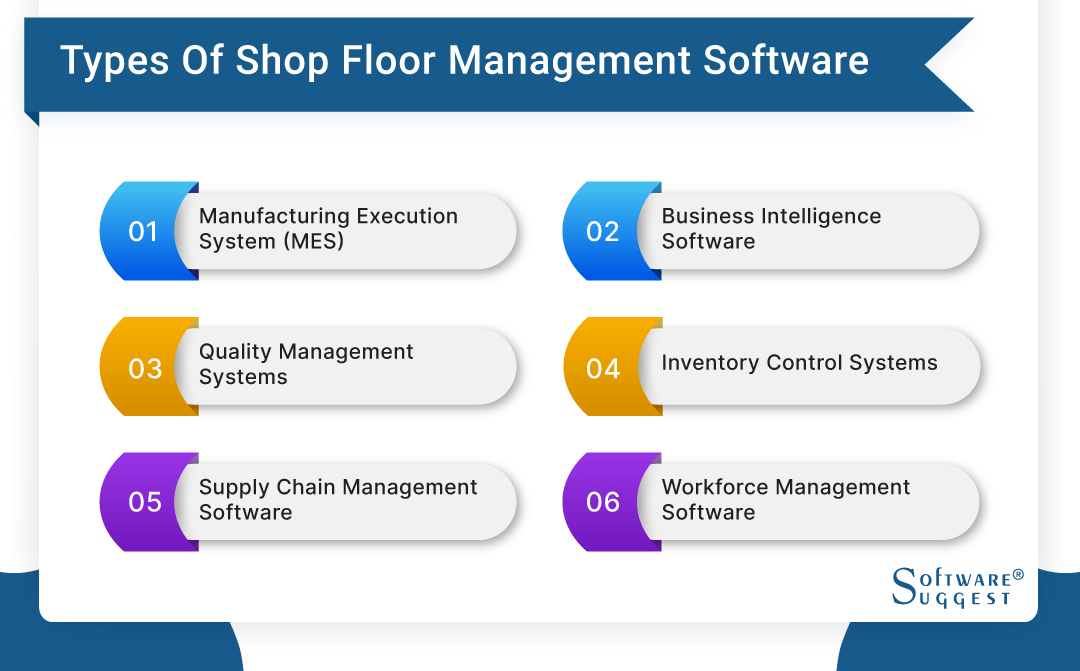
-
Manufacturing Execution System (MES)
This type of software is designed for shop floor management, which primarily aims to enhance and streamline the entire manufacturing process. With MES software, manufacturers are served with real-time visibility into their different kinds of production shop floor operations.
Through this, they get a clear window to monitor and control the process as it happens efficiently. This type of manufacturing shop floor software includes various modules. Each one is designed to manage different aspects of the manufacturing process, like production scheduling, material tracking, inventory management, etc.
Key features of MES software include the ability to schedule production runs based on all the resources available and reliable demand forecasts, track quality metrics and alert operators of quality issues, and much more.
-
Business Intelligence Software
Manufacturers can easily make various informed decisions by analyzing and presenting data from various sources using Business Intelligence software.
This type of shop floor management software collects and transforms data into meaningful insights, enabling manufacturers to monitor production metrics and identify areas for improvement.
BI software has a long list of features that include data visualization, data mining, predictive analytics, and reporting. This allows manufacturers to monitor key performance indicators (KPIs) such as production yield, cycle time, and quality metrics efficiently.
To provide a comprehensive view of the manufacturing operation, BI software can be integrated with other shop floor management software like MES. Through this, manufacturers can easily optimize production processes, reduce costs, and improve quality.
-
Quality Management Systems
As the name suggests, this shop floor management software lays a helping hand to manufacturers in improving and maintaining the quality of their products.
QMS software provides a plethora of tools to help manufacturers monitor and manage all aspects of quality control — from initial product design through to final inspection.
Document control, change management, audit management, etc., are all crucial elements of QMS software. Document control tools allow manufacturers to manage and track all documentation related to quality control.
This includes various policies, procedures, and work instructions. Moreover, through this, manufacturers can ensure that all employees have access to the most up-to-date information — reducing the risk of errors and non-compliance.
-
Inventory Control Systems
Inventory control systems software is a robust solution for manufacturers to manage inventory levels and control costs. It has powerful tools to track inventory, manage transactions, and optimize levels.
With this shop floor monitoring software, monitoring inventory levels in real-time and automating inventory replenishment processes for manufacturers becomes a mere cakewalk. It ensures optimal inventory levels, avoiding overstocking or stockouts.
Real-time inventory tracking helps manufacturers identify any possible shortages or excess inventory, preventing stockouts or overstocking.
Automated replenishment plays a key role when it comes down to reducing the risk of human error and improving efficiency. Through this, optimal inventory levels can easily be ensured.
-
Supply Chain Management Software
This type of shop floor management software serves responsive features to manage suppliers, materials, and logistics and ensures that different shop floor operations run smoothly.
By providing visibility into supplier performance across multiple locations, supply chain management software assists in managing global purchasing shop floor operations.
It also helps manufacturers monitor supplier quality, track performance, and manage supplier relationships — resulting in a stable supply chain and reduced disruptions.
-
Workforce Management Software
If you wish to optimize your workforce productivity, scheduling, and attendance tracking, this type of workforce management software is perfect.
The software includes features such as scheduling, time and attendance tracking, and labor cost management. By having these tools by your side, manufacturers can easily curate efficient schedules, manage labor costs, and monitor employee attendance to ensure they are getting the most out of their workforce.
Labor cost management tools enable manufacturers to monitor labor costs, including wages, benefits, and overtime pay. This helps manufacturers manage labor costs effectively, ensuring that they stay within budget while ensuring employees are paid fairly.
Benefits Of Shop Floor Management Software
Now that you are thoroughly clear with the concept of shop floor management software — let's explore its benefits.
-
Rapid Information Flow
If the flow of information is pretty quick and seamless, there are increased chances that your business can easily thrive. The software can extensively boost its speed and accuracy by managing information flows effectively.
With the help of manufacturing shop floor software that provides real-time analysis, you can gain complete control over the supply chain. You can also choose certain specific parts of the manufacturing process that require your attention.
-
Manage and Reduce Manufacturing Costs
The data entered into shop floor management software and various other manufacturing production systems tends to limit their utility. Because older systems require a lot of manual data entry, the success of your business relies on how quickly you can enter the data.
More modern systems usually eliminate these through the use of automation tools, saving your staff time when entering data and revealing potential areas for productivity growth.
Through this, organizations experience huge profits alongside reduced costs spent in managing a wide range of non-revenue activities.
-
Resource Planning
Proper allocation and management of resources grab a crucial spot when it comes down to running manufacturing operations efficiently. Resources, including materials, equipment, personnel, and other assets, are essential for production, and manufacturers must ensure that they are utilized effectively.
With the help of real-time data on production processes, shop floor management software can facilitate robust resource planning. This information can be utilized to optimize resource allocation, thereby reducing waste and enhancing productivity.
-
Run "What If" Analysis Scenarios
Manufacturers can easily hop on shop floor management software to run "what if" analysis scenarios, which refer to simulating various production scenarios to determine the potential outcomes of different decisions or changes made to the manufacturing process.
Some of the most common examples of disruptions in manufacturing may arise due to inadequate supply, which mainly highlights the need to examine inventory management, facility capacity, and the overall supply chain.
By visualizing production schedules before their implementation, manufacturers can simulate various variables and select the optimal production scheduling approach. This allows them to manage inventory effectively and ensure seamless production operations.
-
Maintain Shipment Dates
With the help of shop floor management software, maintaining shipment dates becomes a mere cakewalk. The software helps you find out when you can ship manufacturing orders. This is quite integral when taking new orders because you can convey to the customer the exact date when they will receive their order.
In addition, it helps avoid paying extra money to workers for overtime or disappointing customers with any kind of late shipments. When you keep your promises to customers, they are more likely to come back and buy from you again, resulting in increased customer satisfaction.
Using real-time production data tracking can easily predict when work-in-progress orders will be completed, allowing them to be released.
Sometimes there are bottlenecks in production, which means some jobs might have to be moved to different resources. This is called constraint management, which deals with delayed activities caused by limited resources or materials.
-
Integrate Your Operations With ERP Systems
Adding shop floor management software to your current manufacturing enterprise resource planning software environments is an excellent choice.
This integration enables manufacturers to manage their operations, from the production floor to the back office, and obtain real-time visibility and control over all aspects of the manufacturing process.
Some shop floor control solutions primarily include integration wizards, which can help with data collection for other systems like CRM software.
In other cases, an SFM software provider might focus on integrating their product with a particular MES or ERP. Having a complete view of your operations is the biggest advantage of having complete integration with other business management systems.
Production data collected on the shop floor is automatically transmitted to the ERP software, eliminating the need for manual data entry and reducing the likelihood of errors. Manufacturers can monitor inventory levels and avoid stockouts, lowering expenses and increasing productivity.
-
Improved Transparency
Shop floor management software provides real-time data, project insights, and supply chain information, all at your fingertips. This software enhances employee efficiency and commitment, making sure that they achieve their goals.
It also increases transparency and credibility by presenting accurate corporate data. With all the essential pieces of information available on the floor management dashboard, employees can easily identify and resolve issues, which significantly reduces reaction times.
-
Real-time Information
Manufacturing units mainly require real-time information to manage the production flow, supply chain, and other aspects efficiently. Shop floor management software tracks every stage of the production cycle and offers real-time data to make highly informed decisions with ease.
Features of Shop Floor Management Software
The most common features of shop floor management software include the following:
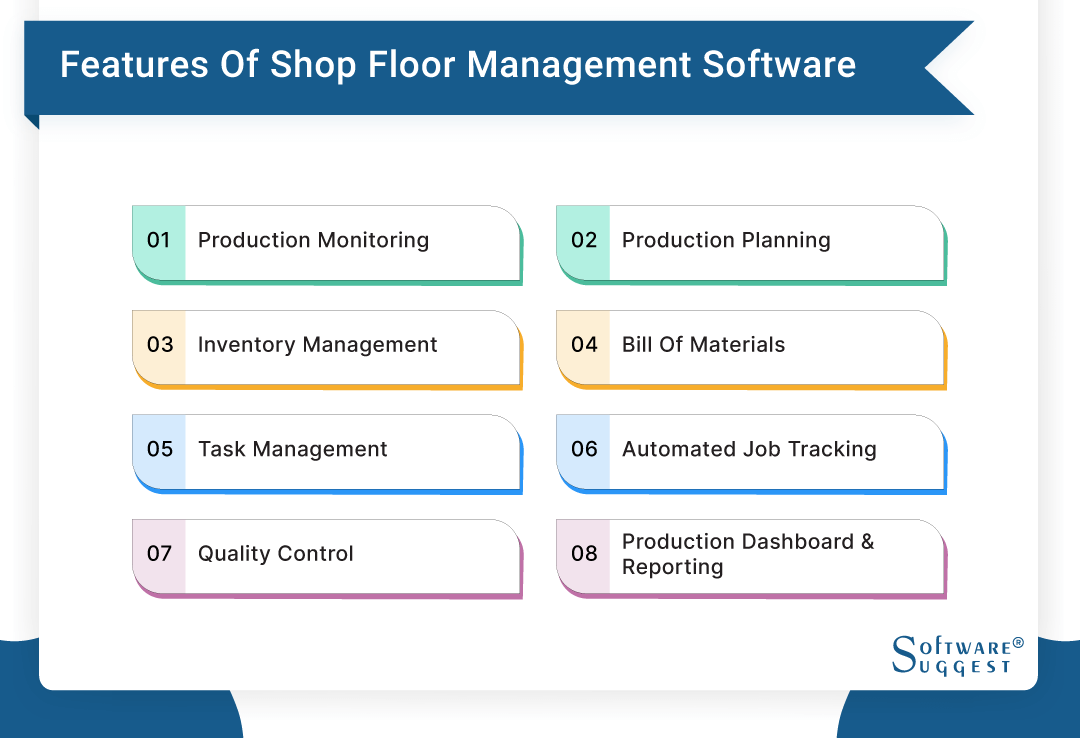
-
Production Monitoring
This feature defines the performance and measurement parameters for each and every tooling configuration or item. With robust production monitoring, organizations can easily obtain data on the work center's overall performance efforts or any position-specific statistics.
The total number of parts produced, production time, downtime, scrap, rejects, the number of parts still to be produced, and other factors should all be included in production feedback.
-
Production Planning
Using shop floor management software, managers can easily view job statuses, schedule jobs more effectively, and lower manufacturing costs extensively. This software is the perfect choice for robust automation and simplification of production planning.
This feature helps determine the overall need for required materials and the ability to complete an entire manufacturing production order — resulting in smooth manufacturing production orders.
-
Inventory Management
Inventory management assists in keeping a constant track of highly finished goods and material availability by allocating raw materials to production orders or finished goods to sales orders.
With this, managers can keep an eye on inventory levels in real-time and determine whenever it needs to be reordered/replenished. It can also send alerts when stock levels drop dangerously low, enabling the appropriate action to be taken.
-
Bill of Materials
This feature plays a pivotal role in specifying the necessary parts, pieces, and subassemblies required for each individual product. Users can automate inventory adjustments and assist with calculating production costs with the bill of materials.
-
Task Management
By integrating shop floor management software, you can easily create multiple to-do lists and carefully assign tasks to various departments/employees. This highly optimizes a huge amount of time and resources by serving a clear visibility of the entire project lifecycle, which upholds huge responsibility within a manufacturing order.
-
Automated Job Tracking
The shop floor control software helps to keep an eye on the progress of work through automated tracking. It keeps regular track of various tools, machines, and materials used in production processes. This way, every and every task is finished on time, and delays are eliminated.
-
Quality Control
The shop floor management tools serve as a highly robust quality control system to make sure that everything meets the necessary standards and regulations. This feature plays a crucial role in attracting more potential customers. It also helps find and solve problems that need attention on a priority basis.
-
Production Dashboard & Reporting
Users can easily drill down into particular areas as needed for additional analysis or troubleshooting tasks using the dashboard view of all processes, which is a prominent feature of this software.
As the production cycle continues to grow, it also has robust reporting features that can play a key role in tracking goal progress and comparing performance to various projections.
Who Are the Users of Shop Floor Software?
There is a wide range of users that choose to use shop floor control software. Some of the most common ones include:
-
Maintenance Manager
The maintenance manager is served with the responsibility of conducting regular maintenance checks and repairs, which facilitates the smooth running of all the machinery.
-
Production Manager
The production manager maintains the entire production process and ensures that all the production goals are achieved on time in a structured manner.
-
Supervisors
This role mainly comprises managing all the workers on the shop floor, assigning tasks on time, regularly tracking the progress, and addressing important issues.
-
Warehouse Manager
The warehouse manager tracks inventory that keeps coming and going, ensures proper storage, along with keeping an eye on handling procedures.
-
Quality Control Manager
Since quality upholds huge importance, so does this role. A quality control manager ensures that all the essential quality standards are met on the shop floor by supervising all the product tests and various inspections.
-
Logistics Coordinator
The logistics coordinator plans the apt transport routes for various products ranging from warehouses to the exact customer locations, which ensures timely delivery and reduced expenses.
-
Vendor Managers
On a shop floor, the list of vendors can be quite a long one. This is where vendor managers come into the picture. They efficiently manage vendors that supply materials required for production, manage multiple payment processes, and much more.
-
Safety Manager
The safety manager ensures that all the essential safety regulations are followed on the shop floor. This is accomplished by enforcing various procedures and serving employees with training on a regular basis.
-
Employees
Employees are the ones that mainly derive processes. They efficiently carry out all the tasks assigned to them by different supervisors/managers.
How to Select the Right Shop Floor Software?
With the ever-evolving globe and multiple shop floor management systems available — choosing the right shop floor software is a daunting task. Below-mentioned are the top-notch ways one can easily land on the right shop floor software. Let's take a look at them!
-
Identify Needs
The first and foremost step is to assess the entire software needs and curate a dedicated action plan. Take into consideration all the production processes or tasks you wish to manage and then categorize them on the basis of different features.
-
Do Research
Research plays a crucial role in choosing the right shop floor software. By digging deep into the existing solutions in the market and exploring their reviews - you can easily compare the different shop floor software alternatives available.
-
Test Solutions
After narrowing down all the potential solutions, it's vital to thoroughly test each one of them to ensure that it satisfies your requirements for functionality, scalability, and usability. Prior to making any decisions, be sure to examine all available functionalities, including reporting capabilities and user interface design
-
Make Your Decision
Once the testing part is completed, gather all the essential pieces of information from testing and research, and then you can carefully evaluate each solution to determine which software is best for you and your company's requirements.
Top 5 Shop Floor Management Software
Here are the top 5 shop floor management software. Let's dig deep!
1. EnterpriseIQ
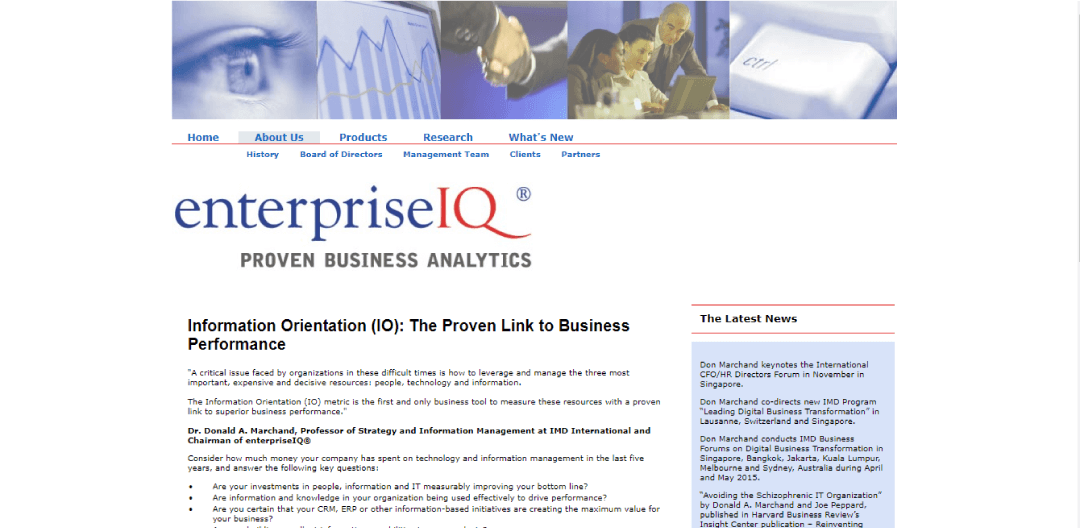
EnterpriseIQ by IQMS is a manufacturing ERP software that is comprehensive, scalable, and integrates all functions of your organization into a single unified system.
Key Features
- Robust time tracking
- Preventative maintenance
- Warehouse management system
- Electronic data interchange (EDI)
Pros
- Rapid implementation
- Reduced complications
- Reduced ownership costs
Cons
- No option for 3PL billing and 3PL inventory tracking
- No features like electronic data interchange or inventory optimization
Pricing
- Pricing range - $25K - $300K
- Cost per user - $250/mo
2. MasterControl
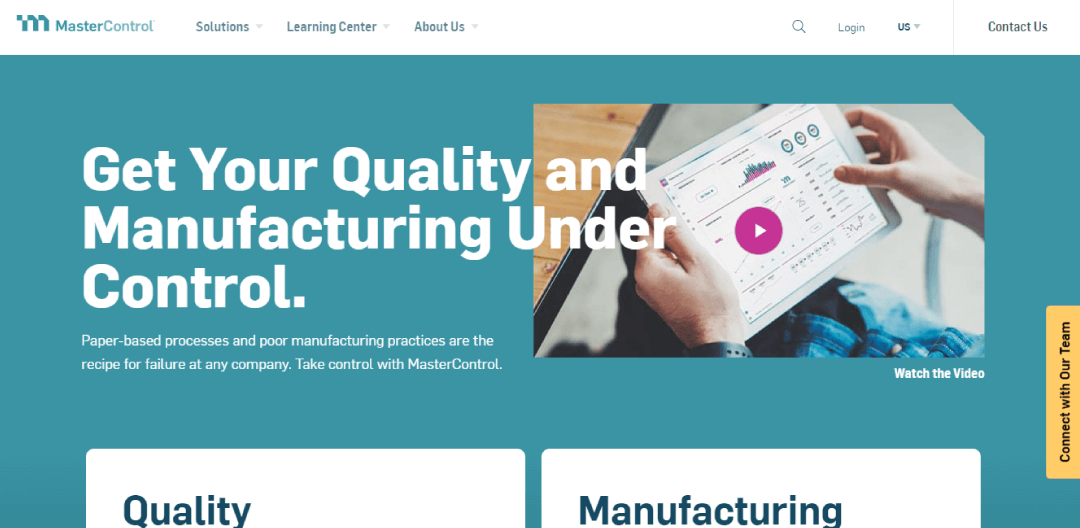
MasterControl, being a popular manufacturing ERP software, offers strong tools to help manage documents and keep them organized. The software can automate many tasks related to storing, sorting, retrieving, checking, and organizing documents.
Key Features
- Search option
- Automation
- Collaboration
- Risks and mitigation
Pros
- Pretty flexible for any regulated industry
- Excellent document control
Cons
- Quality systems aren't fully paperless
- Extensive time required to implement new modules
Pricing
-
On Request
3. Rootstock
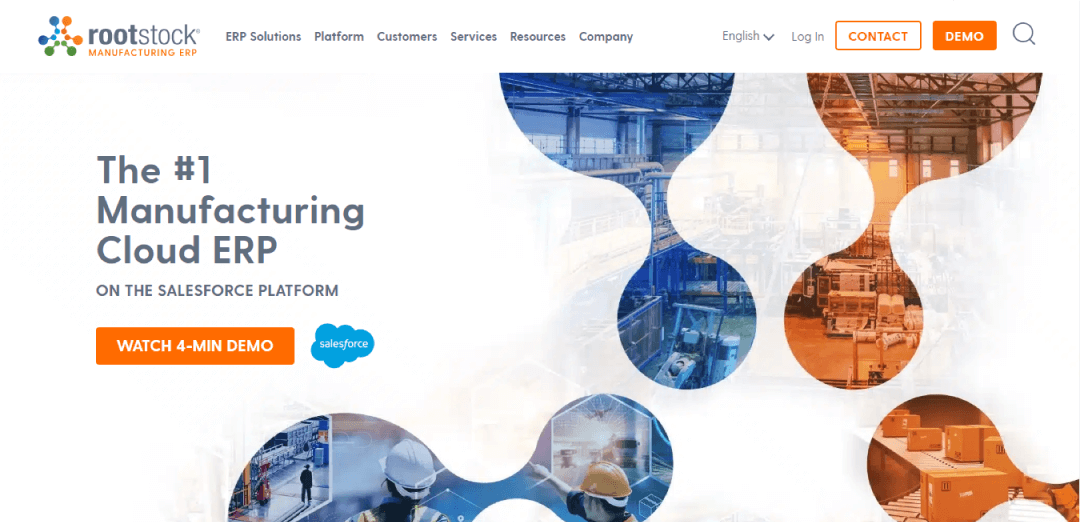
Rootstock is one of the most modern manufacturing ERP software solutions that run on the popular Salesforce Cloud Platform. It was created specifically for manufacturers, distributors, and supply chain organizations.
Key Features
- Warehouse management
- Purchase management
- Supply chain management
- Schedules production job
Pros
- Excellent compliance management
- Serves real-time data
Cons
-
Expensive salesforce data
Pricing
- $200 per user per month
- Additional implementation cost
4. Frepple
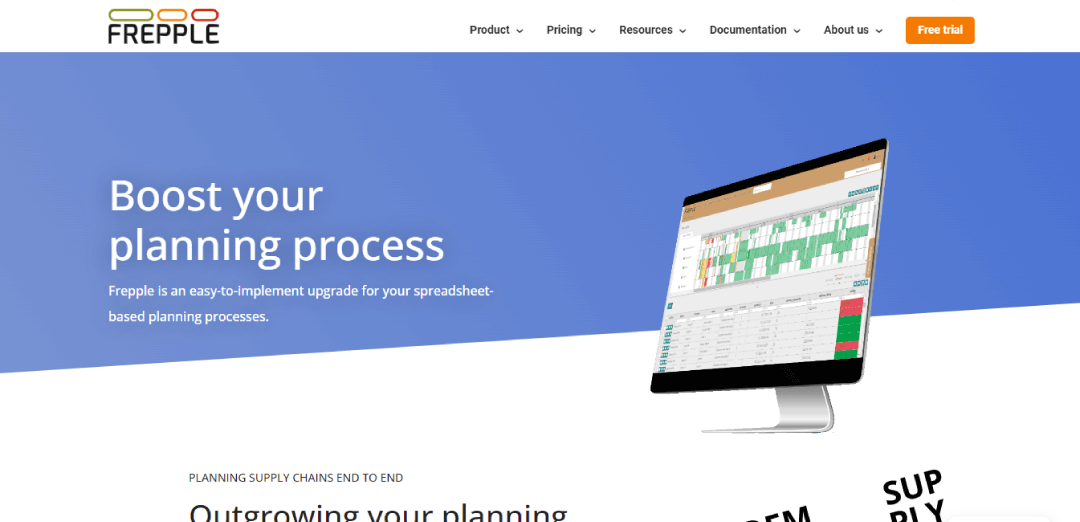
Frepple is a comprehensive scheduling software created to assist startups and small to medium-sized enterprises (SMEs). It offers a range of solutions designed specifically for the Windows operating system.
With this online scheduling system, Capacity Planning, What-if Analysis, Scheduling, and Change Management all can be done under one roof.
Key Features
- Automated scheduling
- MRP
- Odoo integration
Pros
- Intuitive UI
- Cost-efficient
Cons
-
Requires precise implementations
Pricing
- Basic: $962 per month
- Standard: $1202 per month
- Custom: On request
5. QT9 ERP
QT9 ERP is a powerful software solution that provides a range of end-to-end solutions specifically tailored for web applications. With QT9 ERP, you can streamline your business operations and improve your efficiency, no matter the size of your organization.
Key Features
- Quality management
- Bills of material
- Accounting integration
- Customer management
Pros
- High data security
- Easy to use
- Free trial
Cons
-
No customizability of modules
Pricing
-
Pricing models available on request
Current Trends Related to Shop Floor Management Software
The current trends in relation to shop floor management software are written below. Let's explore them!
-
Software for managing production on the shop floor is primarily designed to make the manufacturing and production processes more efficient and boost productivity. It can easily automate tasks like scheduling, order tracking, and inventory management, which can eliminate inefficiencies and save time.
-
Shop floor management software ensures that data is collected accurately and reliably. This extensively reduces the risk of multiple errors and ensures that various processes are carried out correctly.
-
The software gives businesses a real-time view of their varied shop floor operations. This allows them to monitor and control production processes more effectively, identify areas for improvement, and take action quickly.
-
By automating most of the manual processes, shop floor management software can reduce the costs associated with labor. This can result in significant savings for businesses over time.
-
The software enables businesses to track quality control metrics in real-time, making it a mere piece of cake to identify and address any issues that may arise. This ensures that products meet quality standards and reduces the risk of costly customer returns or complaints.
-
Shop floor monitoring software enhances communication between stakeholders and shop floor personnel by providing real-time data-sharing capabilities. This enables faster decision-making and smoother coordination between both teams.
Conclusion
Manufacturing companies can leverage the power of shop floor management software in order to achieve better efficiency, lower costs, and streamline their production processes. By automating tasks, offering real-time data, and integrating with other software types, shop floor management software can keep businesses competitive.
With our highly experienced professionals, we can help you get the implementation of your shop floor management software seamlessly.
Speak to our experts today!
FAQs
Shop floor management software can easily work with many other types of software to provide a long list of features. These mainly consider enterprise resource planning (ERP) systems, customer relationship management (CRM) systems, and accounting and financial software.
ERP systems help combine data from various departments within a company, such as production, finance, and inventory control. CRM systems help facilitate better communication between customers and sales teams. Accounting and finance software can help streamline transaction tracking and data analysis.
Additionally, shop floor management software may have a Human Resources (HR) module that deeply integrates with various HR-specific applications to make sure employee scheduling and payroll administration remain efficient.
The essential features and functionalities significantly impact the cost of shop floor management software. Basic software typically costs around $1,000 for small businesses, while more comprehensive solutions can cost up to $10,000 for mid-sized businesses.
Costs could be higher for larger businesses that demand customization or specialized modules. One can purchase a system outright or sign up for a monthly or yearly subscription plan as a payment choice.
These plans typically range in price from $50 to over $200 a month, including hosting costs, customer support, and technical support.
















